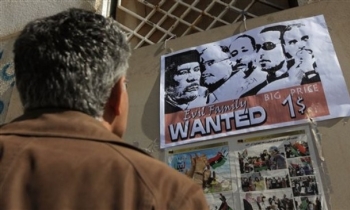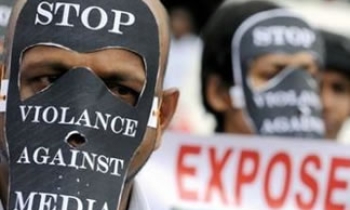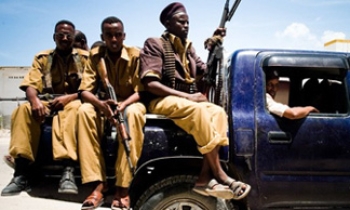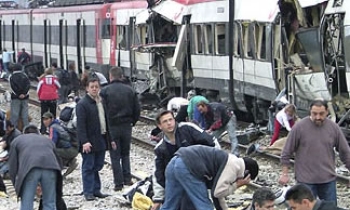The International News Safety Institute (INSI) has dismissed the Iraqi government's restrictions on news coverage of bombings as irrelevant to the safety of journalists. According to a report on state-run Al-Iraqiyah television last week, an Interior Ministry spokesman said the ministry had decided to prevent news teams from approaching the scenes of incidents out of concern for their safety.
Independent newspaper Al-Mashriq quoted spokesman Maj Gen Abd al-Karim Khalaf, as saying there were four reasons for the new curbs: to prevent any tampering with evidence at the site, to protect media people from the possibility of a second blast, to preserve the victims' human dignity by not showing them on TV and to avoid giving terrorists information about the results of their attacks.
Iraqi police enforced the order two days later, when they prevented journalists from covering the aftermath of a twin bomb attack at Baghdad’s Tayaran Square. Two bombs in plastic bags exploded in two shops, killing seven civilians and wounding 17 others. Camera operators and photographers who sought to report at the scene were met by Iraqi police who fired shots in the air to disperse the press.
News organisations and other Iraq war specialists contacted by INSI dismissed the stated justification. One senior television correspondent said the reasons given were "spurious throughout".
The following points were made:
- Cameramen are too busy filming bomb sites to have any time or interest in "tampering with evidence"
- While there is a significant danger of secondary explosions at bomb sites, camera crews now have become quite experienced in assessing the risk and deciding when it is safe to go in and film
- The bombers do not need TV to give them information about their attacks - they know very well what they have achieved
One expert said: "It's true first responders are occasionally the target of follow-on attacks, and journalists are among the first responders. But on the basis of that argument, there should no emergency response of any kind — silly — halting attacks on first responders.
"What's been unspoken by Iraqi officials is the suspicion of anyone with a camera at an attack site. Since insurgents and terrorists routinely videotape their attacks, a cameraman seen at attack site soon after the attack runs the risk of being fired upon and/or detained as a suspected bad guy. Ultimately, however, in my view, this is much more of a press freedom matter than a safety issue."
Another commented: "If the government were really that concerned about the safety of journalists, it would provide better protection for the papers, magazines and TV stations that have been repeatedly targeted for attack by gunmen. The main cause of death for journalists in Baghdad has been targeted assassination, not secondary explosions at bombing sites."
Till May 18, INSI recorded the deaths of 201 journalists and other news professionals since the invasion of Iraq in March 2003. The great majority of the victims have been Iraqis, murdered because of their work, and no one has been brought to justice.
"Whatever the reason for this latest restriction of news coverage in Iraq, it is clear it has nothing to do with the safety of journalists," said INSI Director Rodney Pinder. "The Iraqi government has a duty to protect and defend journalists, who form the cornerstone of any democracy, and this action does not address that issue in a serious way."
In a letter to Iraq Prime Minister Nouri Kamal al-Maliki, the Committee to Protect Journalists (CPJ) wrote, "While we recognise security concerns at scenes of violence, the Interior Ministry’s ban appears to be an attempt to limit press coverage of unwelcome news. Journalists, not governments, should determine whether a story is too dangerous to cover. The ministry’s assertion that perpetrators rely on the media for confirmation of an attack is not supported by any factual evidence and, in any case, is no justification for obstructing the news reporting. Neither does the Interior Ministry offer any evidence supporting its insinuation that journalists tamper with evidence at crime scenes."









